PhD students preview April 8 eclipse with planetarium roadshow
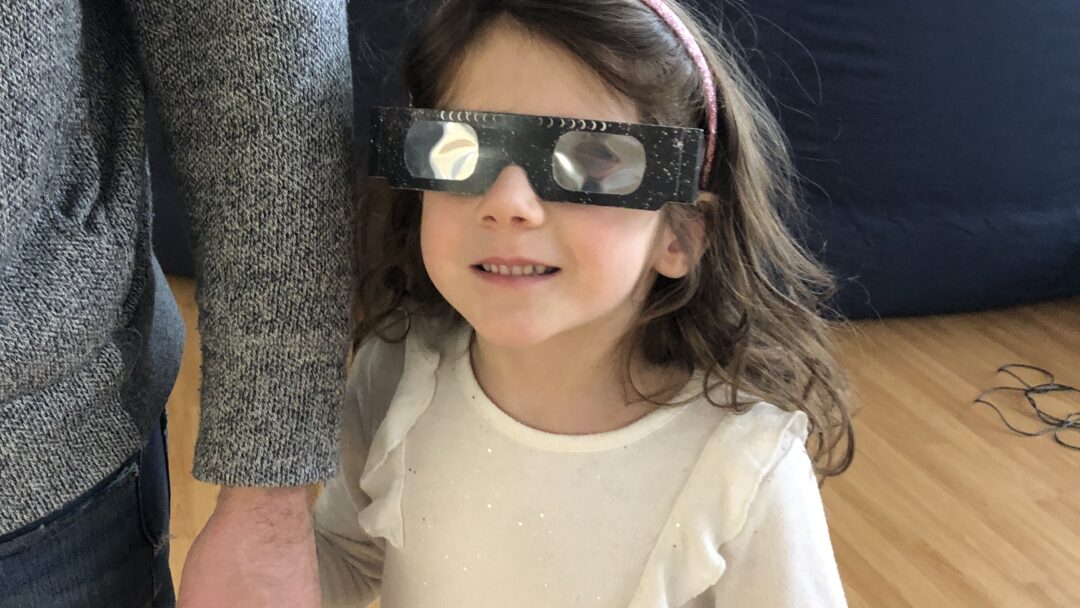
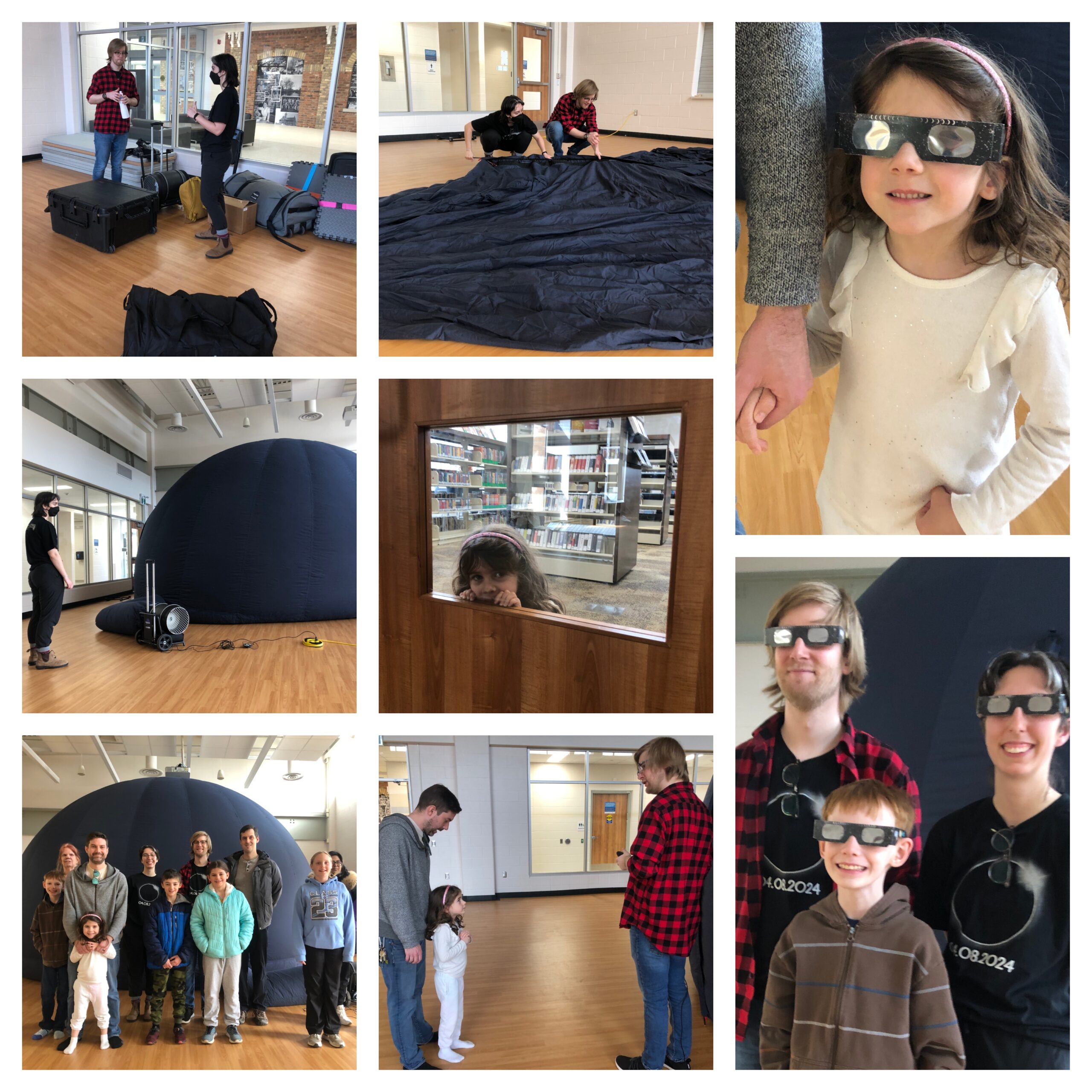 Veronika Dornan and Hector Robinson brought the Sun, Moon and Mars into the Greensville library branch Saturday afternoon for four-year-old Ella and dozens of other kids and grown-ups.
Veronika Dornan and Hector Robinson brought the Sun, Moon and Mars into the Greensville library branch Saturday afternoon for four-year-old Ella and dozens of other kids and grown-ups.
The astronomy PhD students set up the Faculty of Science’s portable planetarium and gave a free preview of the April 8 total solar eclipse. It was a sold-out show that covered off solar and lunar eclipses and what eclipses look like from space and on Mars. No other planets in our solar system get eclipses like Earth, said Veronika. And no place will be better than Hamilton to see the eclipse.
It’s been a whirlwind month for all the Physics & Astronomy graduate students who put their science communication skills to work as planetarium presenters. Hector was coming off back-to-back shows at Burlington schools, with the Royal Botanical Gardens on deck. After running shows in the W.J. McCallion Planetarium in the Burke Science Building for the past four years, Hector signed on to help with the astronomy roadshows. He says it’s great to get out into the community and talk with people who can’t make it to the university.
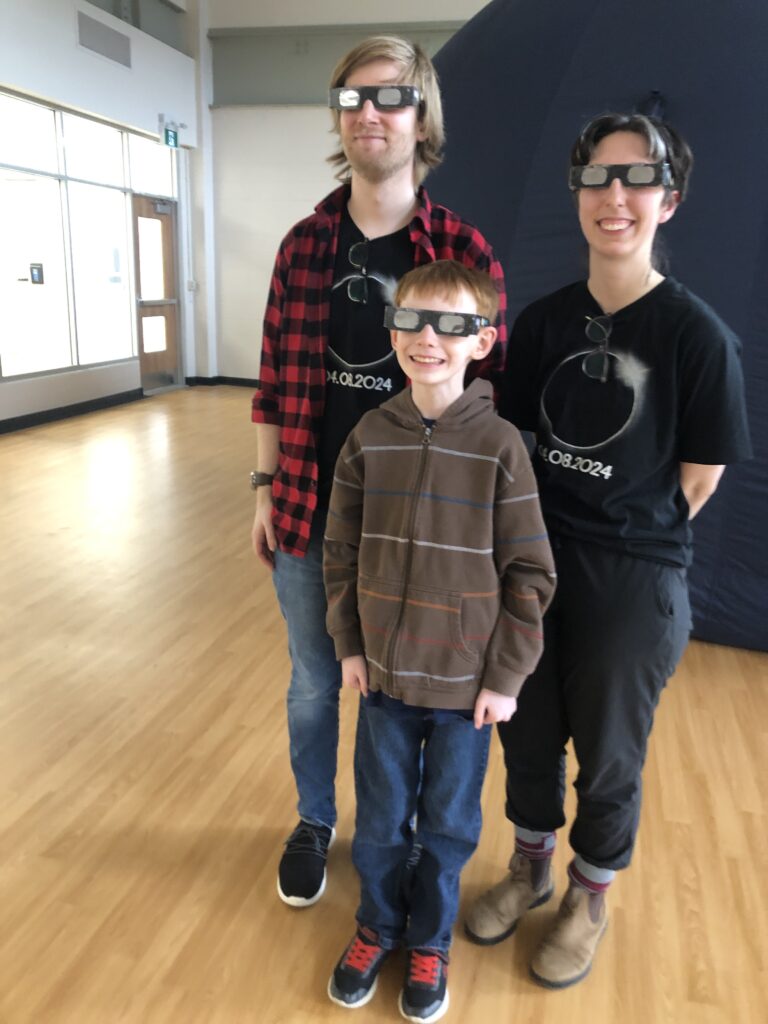 Veronika and Hector say they’re happy to give up some of their weekends because it’s a way to share their love of space and science and inspire future astrophysicists. Kids also ask the best and most hilarious questions, says Veronika. Keeping a straight face can be a challenge. Blackholes top the list of frequently asked questions. “It always comes up,” says Hector while Swiffering the community room floor before unbagging the planetarium.
Veronika and Hector say they’re happy to give up some of their weekends because it’s a way to share their love of space and science and inspire future astrophysicists. Kids also ask the best and most hilarious questions, says Veronika. Keeping a straight face can be a challenge. Blackholes top the list of frequently asked questions. “It always comes up,” says Hector while Swiffering the community room floor before unbagging the planetarium.
Veronika’s favourite question came from a kid who asked what would happen if she fell into a black hole.
Veronika said she’d be stretched out in a process called spaghettification. And yes, that’s a real scientific term first coined by theoretical physicist Stephen Hawking.
Without missing a beat, the kid asked what would happen if she fell into a blackhole while eating a plate of spaghetti.
Hector and Veronika arrived an hour before showtime at the library. Fifteen minutes is the current record for inflating the planetarium, spreading matts out on the floor and getting the laptop and projector up and running. Veronika said they should go into the record books for having the fastest time while being interviewed.
Nicholas Waller was the first to arrive and last to leave. The planetarium show capped off a March Break spent with his grandmother. The 11-year-old is a big fan of all things space. He’d already met astronaut Dr. Dave Williams at the Canadian War Plane Heritage Museum and got a picture together. Nicholas hung around after the planetarium show and added to his collection by getting a photo with Veronika and Hector. Nicholas lives outside the path of totality and is hoping he can skip school and spend April 8 with his grandmother who lives in Hamilton.
Hector plans to watch the eclipse in an empty field with a group of close friends. He’s only seen partial eclipses so experiencing a total eclipse will be “super cool”.
Veronika will be volunteering at the McMaster viewing party in the Ron Joyce Stadium. She’s looking to bring some high-powered telescopes with special filters so partygoers can get an unbelievable view of the once-in-a-lifetime celestial event. Veronika’s already been promised she’ll get alone time for the 90 seconds when the moon completely blocks out the sun. She’ll finally get to experience what she’s been talking about inside the portable planetarium week after week.
Community, Graduate students, OutreachRelated News
News Listing
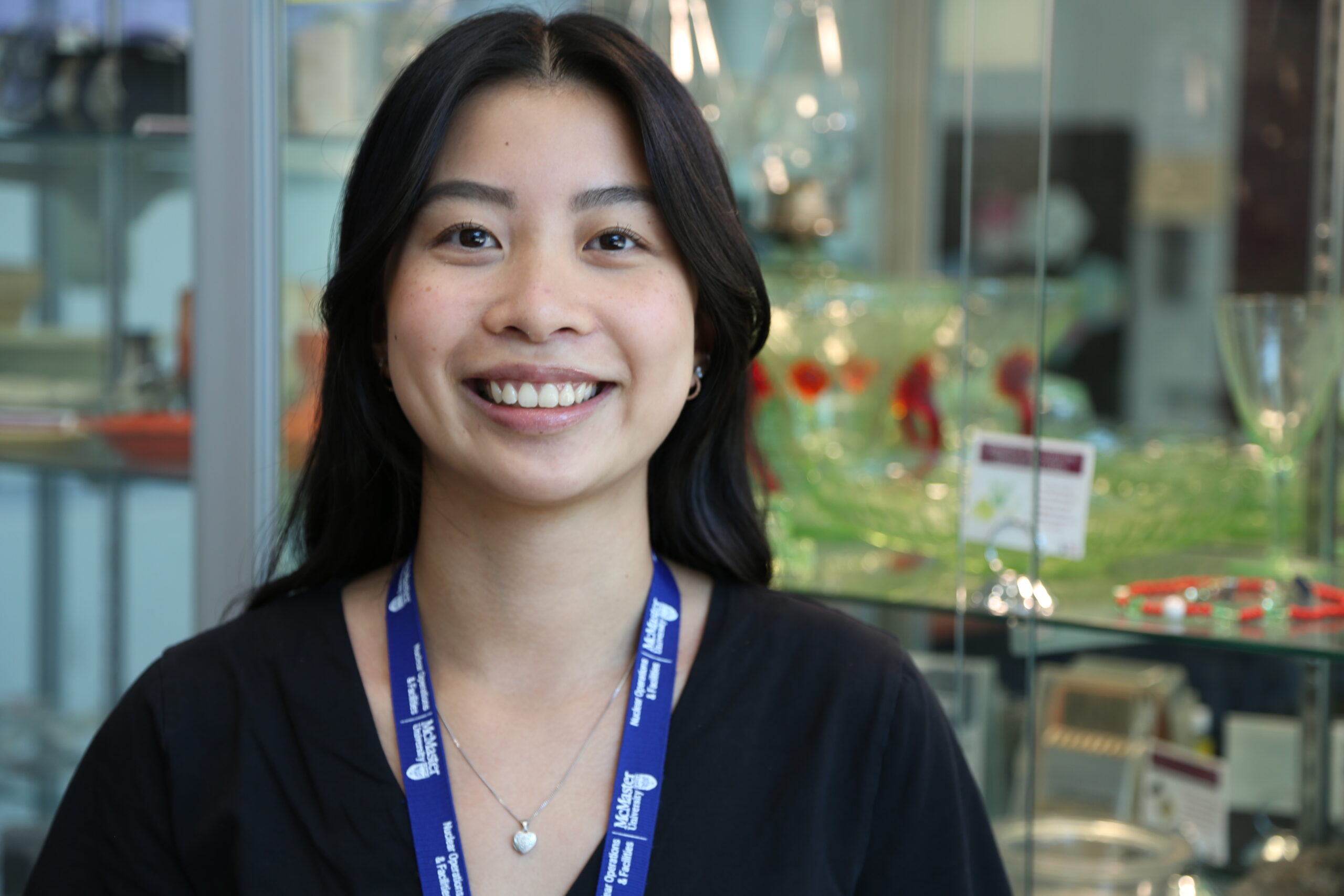
Student tour guides pull double duty as ambassadors for McMaster and the nuclear industry
Graduate students, Outreach
October 22, 2024
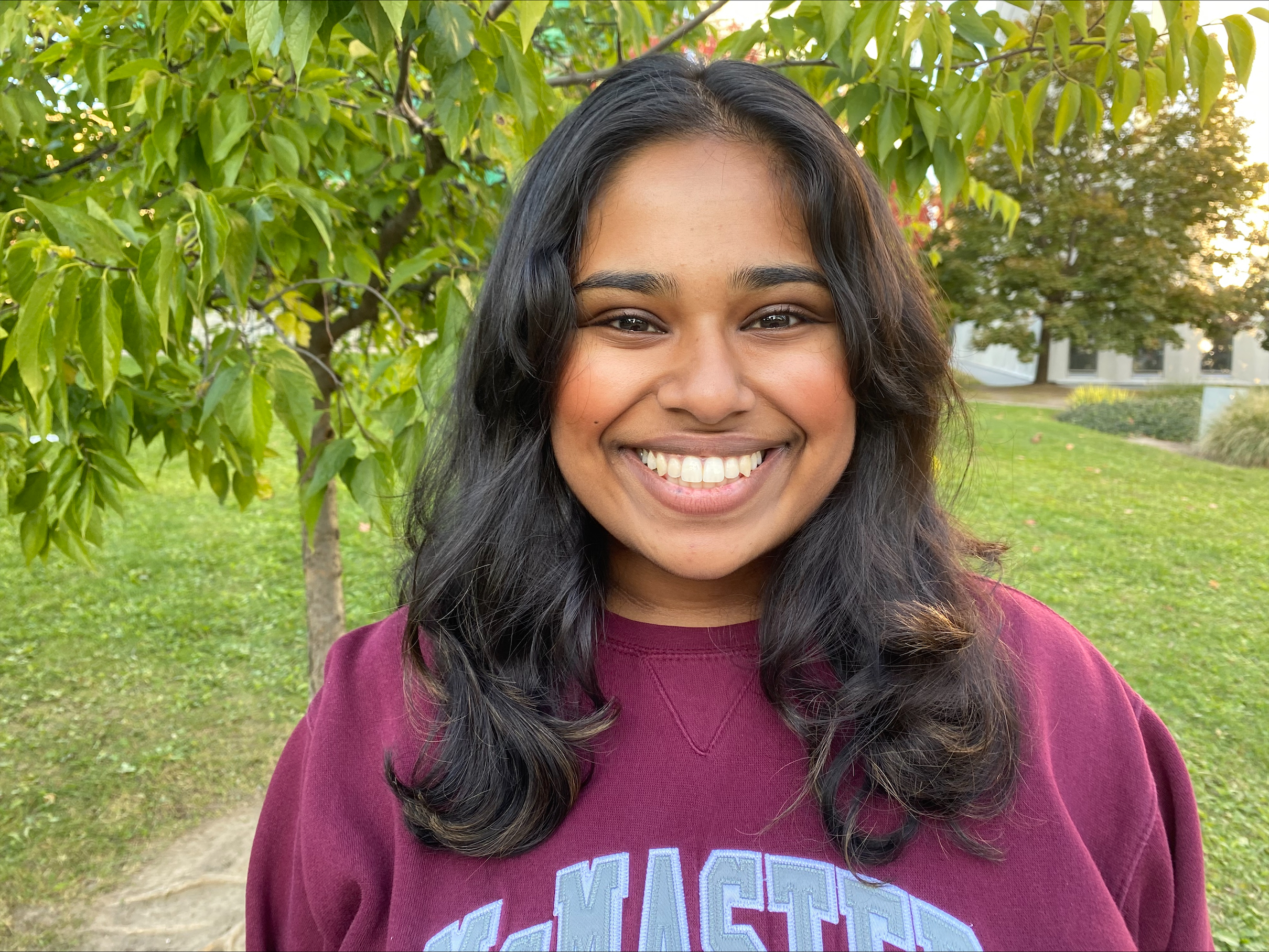
From NOVA to Brain Bee to PNB – lifelong love of neuroscience led to McMaster
Alumni, Outreach, Students
October 18, 2024
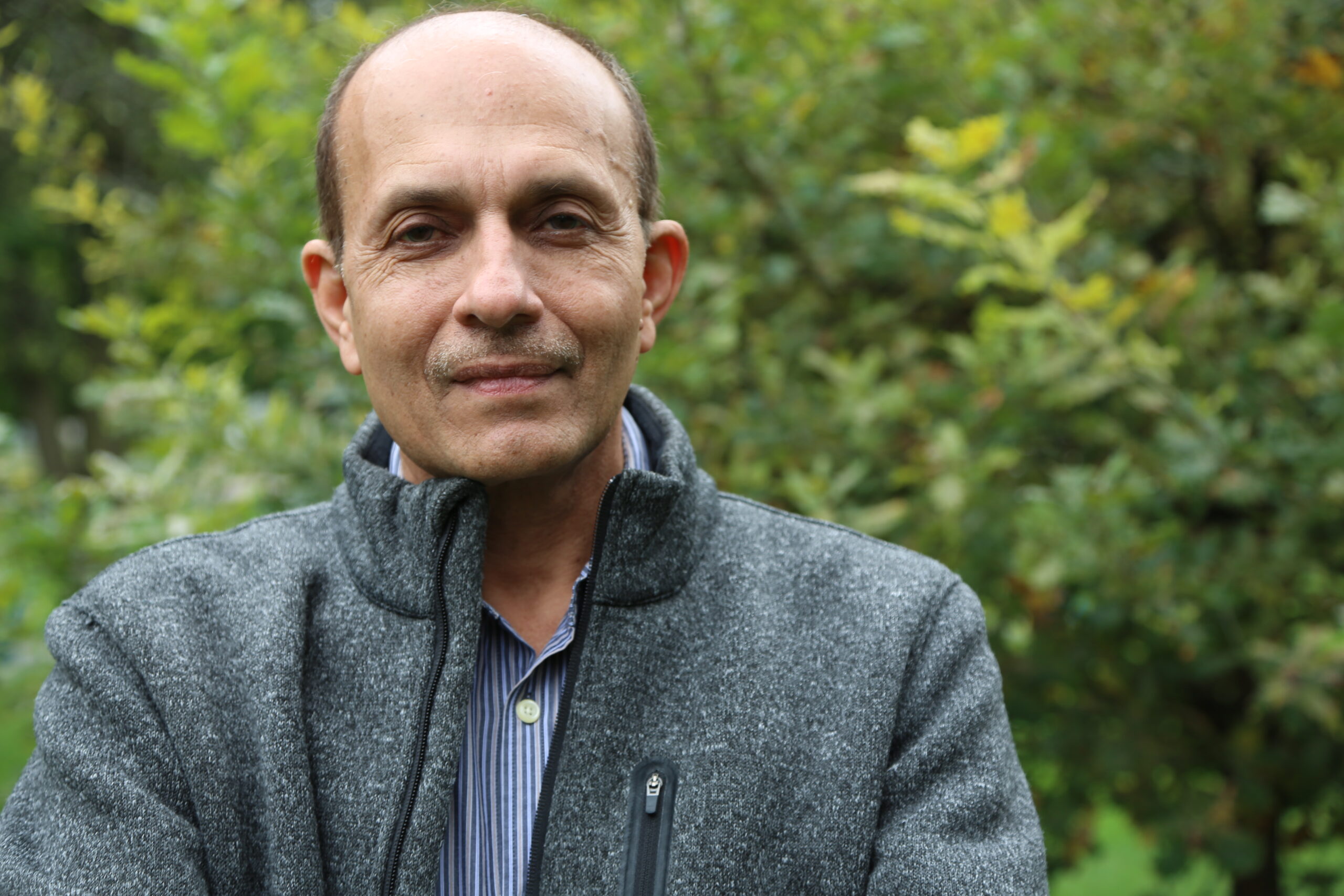
“Unparalleled dedication to student growth and climate science” – Professor’s local initiatives have global impact
Outreach, Partnerships, Research excellence, Sustainability
September 30, 2024
